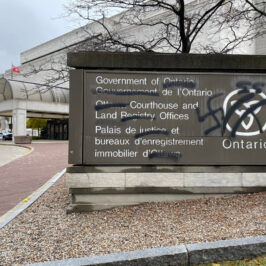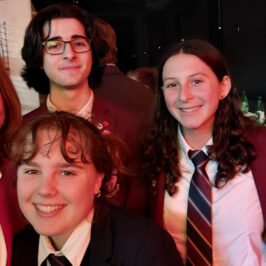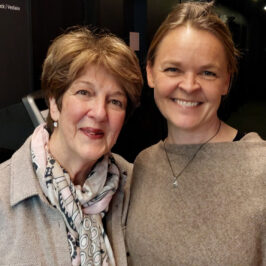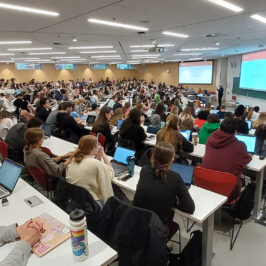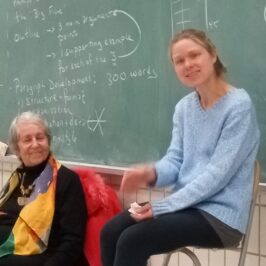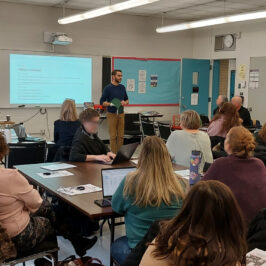by Ron Csillag
November 4, 2021
This article was published in The Ottawa Jewish News
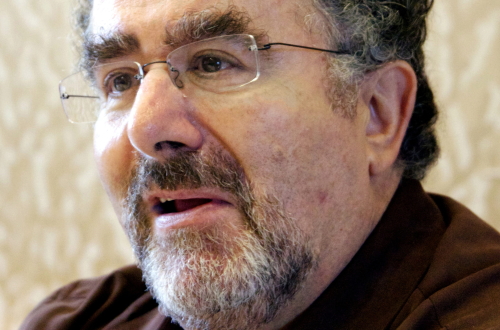 Canadian actor, filmmaker, producer and writer Saul Rubinek will open Holocaust Education Month in Ottawa on Nov. 9 by performing excerpts from his new play, All in the Telling.
Canadian actor, filmmaker, producer and writer Saul Rubinek will open Holocaust Education Month in Ottawa on Nov. 9 by performing excerpts from his new play, All in the Telling.
There is much to tell and much to weigh about the telling—and the hearing.
“It’s a meaningful title to me because it tells you that it’s not just the act of telling, it’s who’s telling it and who’s listening to the telling,” Rubinek said in an interview with The CJN from his home in Los Angeles.
His 50-year career has been rich with hundreds of roles on stage, screen, radio and television, most recently in successful TV series such as Hunters, Schitt’s Creek, and The Marvelous Mrs. Maisel.
For many of a certain age, Rubinek’s most personal and poignant works were the 1987 documentary film So Many Miracles, coinciding with a book of the same title.
In them, he traced his Holocaust survivor parents’ tearful reunion with the Polish Catholic farmers who had hidden the couple and saved their lives during the Second World War.
But the film and book appeared before Rubinek’s children were born. So, around six years ago, he set about writing a play to mine how exploring his parents’ story—its telling and re-telling—has affected his family’s life.
Introducing his daughter Hannah, now 30, and his son Sam, 26, to their grandparents’ past became “a major part of my life,” Rubinek recalled. “When to introduce children to the subject. How to introduce children to the subject, became a major part of my life.
“I was really interested, dramatically, in (what way) to present how three generations of my family were affected by delving into my parents’ experiences, my own experiences (and) my children’s experiences. I hoped (that) if well told, it would become a universal story.”
All in the Telling took four years, on and off, to write, Rubinek recalled, with some “severe” writer’s block right in the middle, and it’s not finished. Currently running at about two hours, the author describes it as “complicated,” but it stresses veracity.
“I don’t change any names,” he said. “My parents names, my name, my daughter’s name, my wife Elinor’s name…I haven’t hidden anything. It’s all very personal and also quite funny, (which) you might find surprising. There’s some very dark material in there.”
The play includes clips from So Many Miracles. The “characters” are Rubinek, his parents, his wife, and others. He’ll have about 30 minutes in the Nov. 9 program to present excerpts.
Rubinek was born in the Föhrenwald displaced persons camp outside Munich, Germany in 1948 to Frania and Israel Rubinek. His father had been a Yiddish theater actor in Poland before the war, and in the DP camp, he formed a Yiddish repertory company where he was a director and actor.
Rubinek’s parents were hidden for over two years during the Nazi occupation of Poland by the Bania family—Zofia, Ludwig and their son Maniek—farmers recognized as Righteous Among the Nations at Yad Vashem. The Rubineks moved to Canada in 1949, lived in Montreal for a time, and settled in Ottawa in 1956 when Saul was eight.
Rubinek believes he learned of his parents’ experiences “too early.” He demurred when asked to elaborate. “With all due respect,” he replied, “it took me a play to try to come to terms with that question.”
Like many children of survivors, he grew up with parents who had nightmares. “I used to think that every kid’s parents, not just Jewish kids, had nightmares. It wasn’t until I had a first sleepover that I found out that was just at my house.”
But he suspects that “if you’re a person of colour or if you’re a First Nations person, there’s nothing much you can do about when you’re going to find out about systemic or structural racism in the society you’re in. You’re born into it in a particular way.”
That leads him to recall an exchange he had in the late 1980s on a Toronto radio show in which he told the host, who wanted to focus on Rubinek’s book and film about his parents: “I don’t want to exclusivize the Holocaust experience,” Rubinek said he told the host. “It is already a unique experience. It was a particular genocide with its own particular roots and its own mechanisms and its own reasons. But there probably hasn’t been a day on the planet where there hasn’t been some kind of genocide. And I’m interested in joining hands with other people who have dealt with trauma.
“My story is really about how I had to deal with my parents, and I think other people will relate to my story.”
What followed were callers to the show who were children of survivors of the genocide in Cambodia, of South African apartheid, those who survived bombings, and First Nations and people of colour “whose parents had gone through trauma, who related to me as a child dealing with their parents’ trauma. Because that’s what I was really talking about.”
And that “gives you a really good idea of what my play is about.”
Rubinek and his wife waited until their children were 13 to tell them about the Holocaust. It “made sense,” he said, because that’s when young people “can begin to contextualize cause and effect. Why introduce the subject of this dark side of humanity so early?”
He would happy if his play premiered in Ottawa—effectively, his hometown—but he’d be “especially interested” if it was staged in Poland, where newly enacted laws punish public speech that attributes responsibility for the Holocaust to Poland or “the Polish nation.” He noted that an increasingly nationalistic Hungary is also whitewashing its wartime record.
“It’s such an odd thing, how people want to rewrite history, isn’t it?” Rubinek ponders.
He said two events arising from recounting his parents’ stories stand out in his memory. One was going to his daughter’s class to screen So Many Miracles. One 14-year-old girl wondered, “if everyone told stories like this, wouldn’t genocide be impossible?”
It was “a very moving question, an innocent question (that) spoke of a profound truth,” Rubinek recalled.
Another was on his return from filming in the Polish city of Lodz. At the time, Rubinek played in a regular poker game with fellow actors, two of whom were First Nations. What was the trip like, they asked.
“I said, ‘the gravestones were used to make the sidewalks in the town.’ And to show you how tone deaf I was, (one of them) looked up and said, ‘yeah, tell me about it.’
“I’ll never forget that moment as I connected to their history. I hadn’t thought of it.”
Ever the actor, Rubinek said he believes everyone has four basic characters in their background when it comes to this subject: perpetrators, victims, heroes, and bystanders.
“Those personalities, maybe more often than sometimes, are within one person, within ourselves. How else do you understand monstrous behavior? It’s easy to call people monsters or heroes, victims, perpetrators. These are labels that don’t really tell us much.
“I think that the only way to really understand horrific acts perpetrated by human beings; horrific suffering; extraordinary acts of bravery; or the fact that people can stand by and do nothing, is if we see those characters within ourselves.”
That’s where art comes in.
“I think that’s why people write novels or movies (so they can) reach across a space and join hands and express a common humanity.”
The launch of Holocaust Education Month in Ottawa will coincide with the annual commemoration of Kristallnacht, the Night of Broken Glass, in which Jews in Germany, Austria, and Czechoslovakia were subjected to state-sponsored terror on the night of Nov. 9-10, 1938.
Presented by the Centre for Holocaust Education and Scholarship (CHES), Holocaust Education Month begins, virtually, on Nov. 9 at 7 p.m. For program details visit chesatottawa.ca
HEAR more from Saul Rubinek on The CJN Daily

